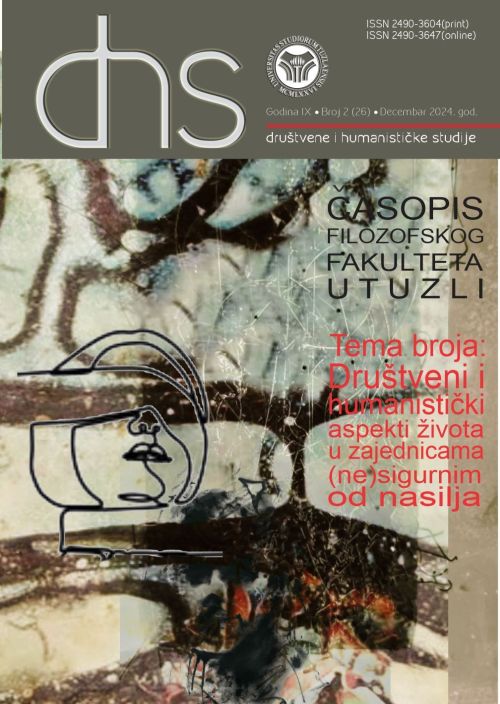Personal, Contextual, and Social Correlates of Political Radicalism and Violence among Adolescents
Personal, Contextual, and Social Correlates of Political Radicalism and Violence among Adolescents
Author(s): Jelena Brkić Šmigoc, Sead Turčalo, Muamer Hirkić, Mirza Buljubašić, Veldin Kadić, Mirza SmajicSubject(s): Politics / Political Sciences, Psychology, Studies in violence and power
Published by: Filozofski fakultet Univerziteta u Tuzli
Keywords: political radicalization; political violence; individual factors; contextual factors; adolescents;
Summary/Abstract: This research aims to identify personal, contextual, and social correlates of political radicalism and violence among adolescents. Research emphasises adolescents, a demographic, identified as potentially risk developmental period for political radicalization due to social identity formation and political socialization. The research employs a comprehensive methodology, utilizing a multi-stage sample of high school students to evaluate individual vulnerabilities and resilience, and broader contextual influences. The findings indicate that family dysfunction, poverty, and peer violence significantly correlate with political radicalism and violence among adolescents, while general self-esteem and cognitive flexibility play less important roles. Supportive social networks and perceptions of threats are crucial factors acting as a buffer against political violence. Interventions aimed at reducing family dysfunction, improving socio-economic conditions, and enhancing social support networks could mitigate the risks of political radicalization and political violence. The study provides valuable insights for policymakers and practitioners aiming to mitigate the risk among youth.
Journal: DHS-Društvene i humanističke studije: časopis Filozofskog fakulteta u Tuzli
- Issue Year: XXVI/2024
- Issue No: 26
- Page Range: 63-94
- Page Count: 32
- Language: English

